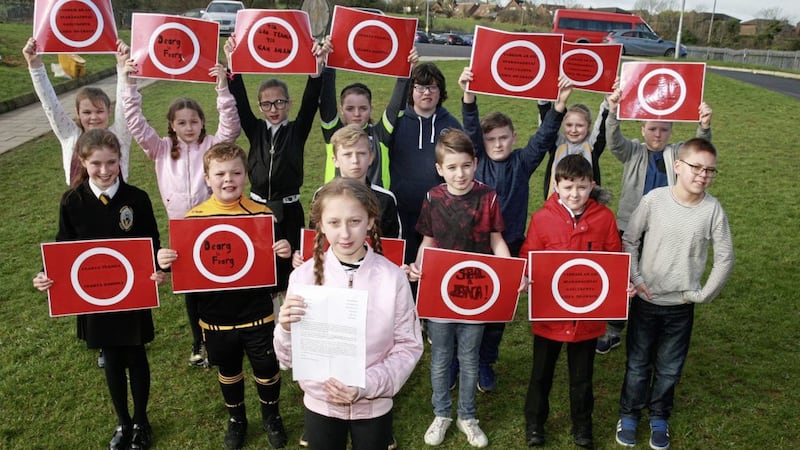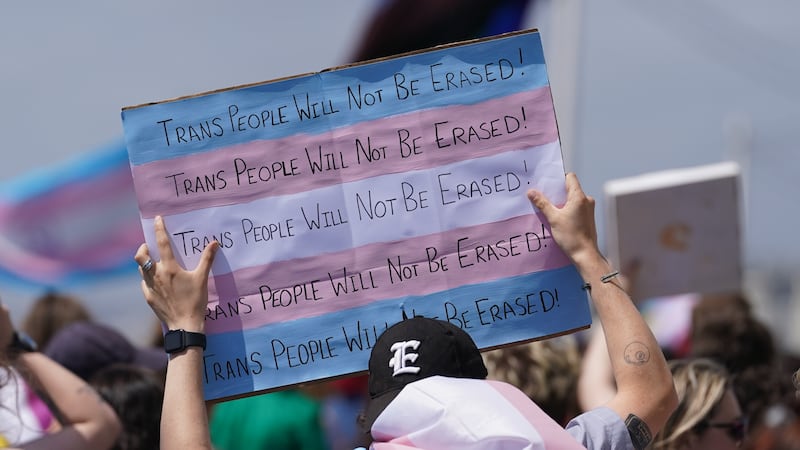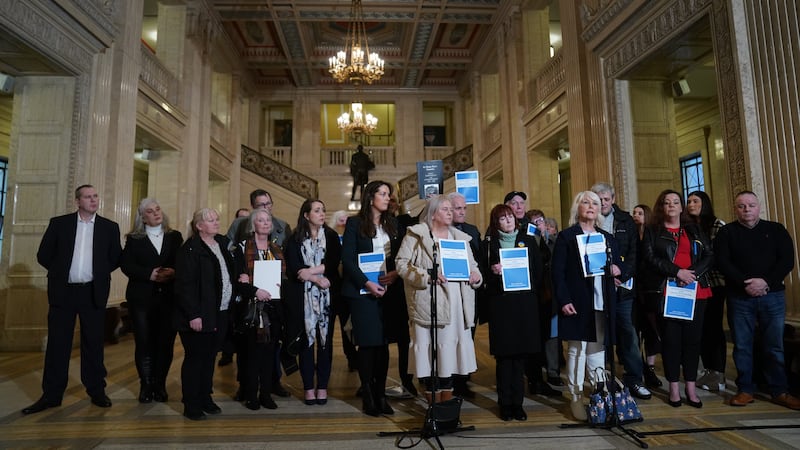A POLISH girl attending a bunscoil has written to the Executive urging former first minister Arlene Foster to show greater respect for the Irish language.
Martyna Borysowska, a P7 pupil at Gaelscoil Éanna, and her classmates wrote letters declaring their support for an Irish language act.
The Act became a key issue in the election campaign after the DUP cut a small grant to send children to the gaeltacht and Arlene Foster compared campaigners to crocodiles.
The former first minister also said that legislation to provide Polish translations would be more appropriate.
Sinn Féin said such an act could operate in Northern Ireland for just £3.5 million a year. This formal estimate for Irish language rights is considerably less that the DUP's warning that it could cost the taxpayer up to £100m annually.
With the school also taking part in the Irish News Young News Readers programme, developing their interests in politics and current affairs, pupils were inspired to write a letter to politicians `as Gaeilge'.
In her letter, addressed to the former first minister, Martyna said she was "unhappy with the disrespect you are showing towards the Irish language".
"My parents and I are from Poland, I speak three languages; Irish, English and Polish, but I feel that what you said about a Polish language act was wrong. I think we should show respect to Irish along with all other languages," she said.
"I want an Irish language act. Ten years ago it was promised at the St Andrews Agreement that we would get one, but it never came. You think that because you don't like the Irish language that we don't need it."
She added that Irish was a central part of young people's lives "and it always will be".
"I want to see signs in Irish on roads and public places, to be able to read and fill in forms in Irish and to have the same resources in libraries that children in English speaking schools have," she said.
"When my class grows up we will be doctors, teachers, dentists and much more, we will be important and we will be Irish speakers, we will show respect to everyone around us and I want to see that respect shown to us now, because we are the future."





